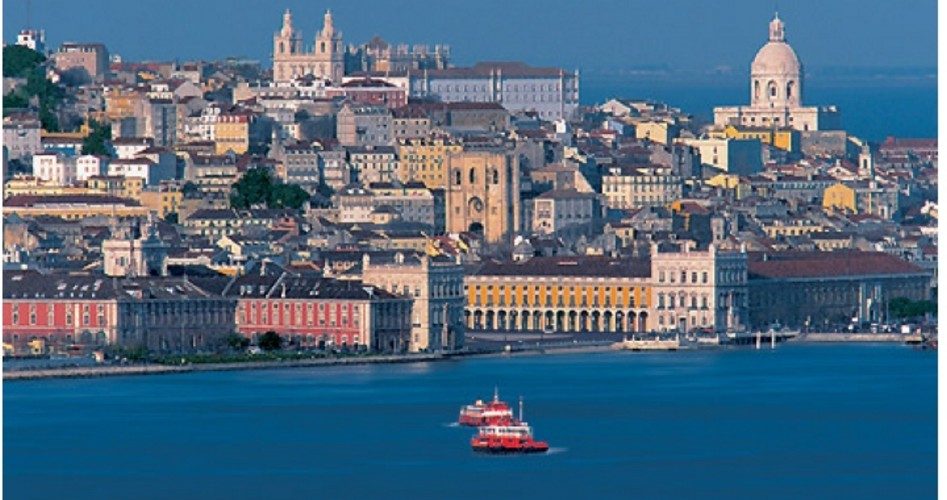
At the beginning of this year Greece, the hardest-hit of all countries in Europe’s unending economic crisis, swept into power the hard-left radical Syriza Party, and Greece has been on the brink of default and economic collapse ever since. The Syriza leadership has been resisting the terms of economic austerity imposed on Greece by foreign creditors, with a Greek exit from the Eurozone being Greece’s bargaining chip.
Now, at the other end of southern Europe, another hard-hit economy seems poised to follow Greece’s example. Portugal, which has largely been compliant with austerity measures, elected a majority leftist government in early October, which Portugal’s President Anibal Cavaco Silva has so far refused to install. As with Greece, Portugal until recently was governed by a “center-right” coalition inclined to kowtow to international authorities to salvage Portugal’s economy in the short term. Now, however, the coalition of socialists and communists who won last month’s election are clamoring for a chance to turn things around for Portugal.
And just what does Portugal’s “recovery,” as engineered by international creditors and Portugal’s “partners” in the European Union, look like? Portuguese have seen taxes skyrocket and savings plummet. Unemployment is still at 12 percent. As Sonia Silva, a fish stall owner in Almada north of Lisbon, described the situation to Reuters:
The situation is extremely difficult. We pay and pay and get nothing back. I have no way of escaping from tax, everything we earn we have to declare. The big firms have people thinking 24 hours a day about how they can avoid tax.
Silva reported far fewer customers at her stall and at the market overall, since Portuguese consumers are now reluctant to pay in cash. They prefer, she told Reuters, to shop with credit cards at higher-priced supermarkets.
Since 2011, almost a half million people have emigrated from Portugal in search of work — to elsewhere in Europe, to Brazil, and even to the Portuguese-speaking African nation of Angola. For a country of 10 million that is already Western Europe’s poorest, this has had a devastating effect on society.
According to the Bank of Portugal, Portugal can expect an economic growth rate of around 1.6 percent in the coming year — far less than the 2.5 to 3 percent minimal requirement to prevent Portugal’s fragile recovery from stalling.
Like Greece, Portugal now finds herself a permanent tributary of international creditors, yet the promised economic revitalization has failed to materialize. Much of the blame for Portugal’s predicament can be laid at the feet of improvident welfarism; as with Greece, Portugal’s government during the economic boom of the ’90s and early 2000s never met a spending program it didn’t like and ran up huge debts on lavish social spending.
Now the Portuguese, fed up with promises of prosperity that years of austerity have failed to deliver, have revolted against the patrician centrists who, thanks to years of big government socialism, have delivered Portugal into international receivership. Unfortunately, they have — like the Greeks — elected to replace them socialists and communists who promise a return to the salad days of big government largesse. With no more public monies left to redistribute, such an outcome bodes very ill for Portugal. Yet, as with Greece, if it hastens the breakup of the Eurozone and a restoration of economic independence, Portugal’s long-term prospects might improve.
Portugal’s President Silva has been mulling for weeks whether to swear in the new government, or whether — as Portugal’s constitution allows — to call for new elections next year in hopes of a better outcome for the Portuguese and European establishment. Many in Portugal’s business sector, however, are already agitating for giving the Left a chance to govern, for some semblance of electoral stability to ensure that international investors do not abandon the country altogether.
Nevertheless, many analysts anticipate that a new leftist government in Portugal, egged on by communist hardliners, will follow Greece’s example and choose to defy Brussels.
The larger fear, at least among Eurocrats, is that Portugal’s electoral instability will spill over into Spain. In December, Spain too will hold national elections, with polls suggesting that Spain’s Socialist Party will make substantial gains and force Spain’s government into the same choice as that of Greece and now Portugal.
One by one, southern Europe’s hard-beset peoples, still suffering from acute economic malaise after five years, are being forced into making a choice between austerity and EU fiefdom on the one hand, and more socialism coupled with the illusion of independence on the other. As the Greek experience has shown, the ardent socialists and communists eager to take over the reins of government from more moderate pro-EU politicians cannot be trusted to keep their promises of defying the European Powers That Be. Greece’s Syriza Party, after campaigning on promises not to accede to the demands of their masters in Brussels, did precisely that after months of political theater. In the end, Syriza’s defiance wilted, and Greece is still under the EU’s iron yoke. It now turns out that Syriza wants not independence for Greece but more bailout monies on less stringent terms — in other words, more dependence on Brussels.
Yet this should not be surprising to sober observers. After all, the European Union and the Eurozone are two of European socialism’s greatest triumphs; small wonder that hardline leftists do little more than insist on more, instead of less, socialism. As one of Portugal’s more moderate politicians observed, “The left is selling paradise. These promises of paradise are empty.”
Indeed.
Photo of Lisbon: Sirene69



